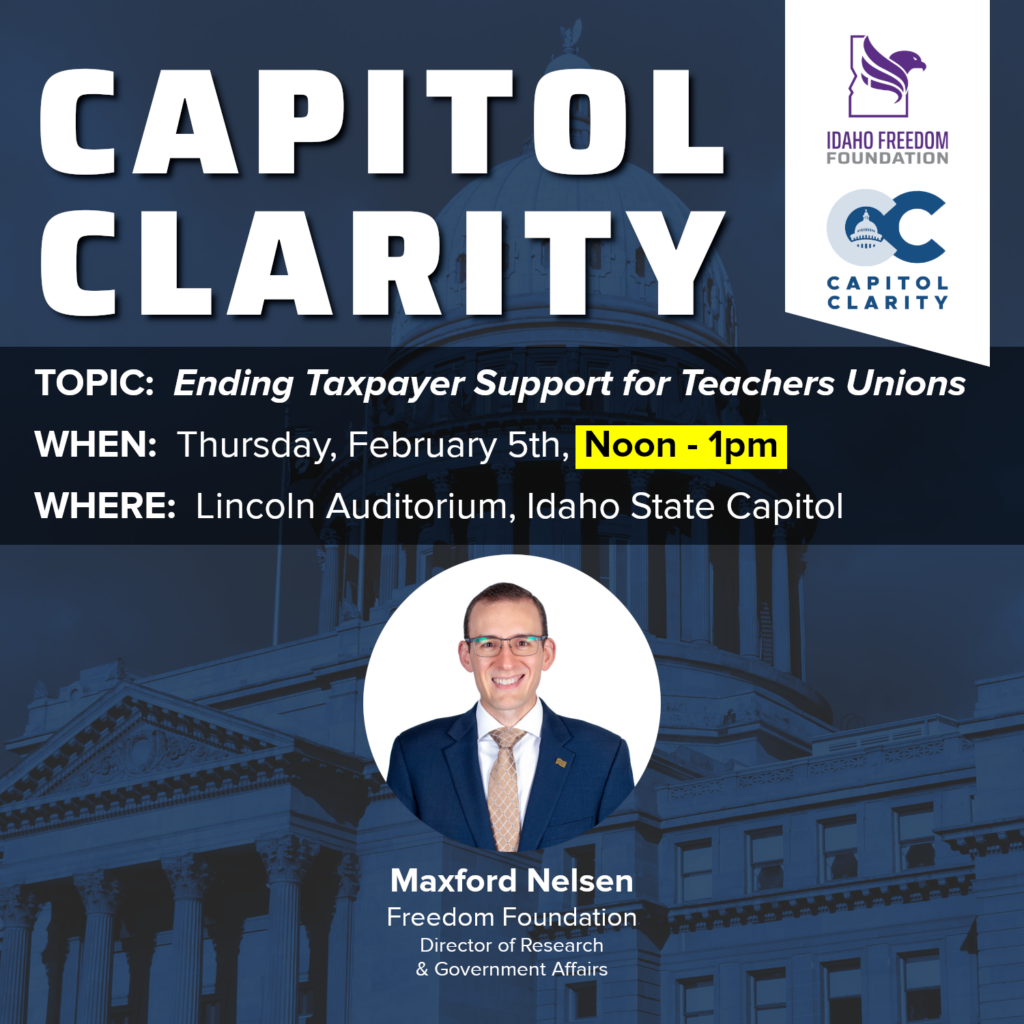


A second politician in as many weeks is being accused of improperly claiming a property tax break. These controversies provide an opportunity to say: Instead of focusing attention and blame on taxpayers, more light should be shined on the local governments that are responsible for higher taxes in the first place.
Secretary of State Lawerence Denney has been battling county government officials over his use of the $100,000 homeowner’s exemption on his property in Midvale. Denney also has a residence in Nampa, and he works at the capitol in Boise. Denney, as with Rep. Priscilla Giddings, R-White Bird, has pointed out that state law says a person can claim one homeowner’s exemption, and it can be applied to a “primary dwelling,” which happens to be a place that a person intends to return to.
This is the same point I made last week when writing about Giddings. She claimed a homeowner’s exemption in Garden City for 2015 and 2016 even though she was registered to vote in White Bird (Idaho County), where she was building a new house. Giddings continued to use her Garden City address during trips to Boise for work.
Both Denney and Giddings acted appropriately, but they’re now forced to defend their decisions and their living arrangements to the government. They have to explain where they lived, where they worked, how often they traveled from Point A to Point B, and so on. That’s the sort of government interrogatories about which no Idahoan should tolerate or feel comfortable. Here, Giddings and Denney are just ordinary taxpayers trying to navigate a strange and clumsy system that requires individuals to prove to the government that a home is their “primary dwelling” for tax purposes.
I’m no fan of the homeowner’s exemption. It hasn’t reduced property tax burdens as it was promised to do when it passed as a voter initiative in 1982. In fact, homeowners have continued to complain of receiving annual property tax increases of 10, 20 or 30 percent, mostly driven by increases in market value.
Here are two solutions to ponder. First, state lawmakers should allow property owners one homeowner’s exemption. It can apply wherever that homeowner chooses it to exist. No more questions about who lived where, when or why. How counties administer such a system is up to them. In the 21st century, it shouldn’t be too difficult for 44 counties to figure out who has and who hasn’t claimed the exemption.
Secondly, state lawmakers should put in place the incentives and consequences that hold local elected officials accountable for the real driver of property tax increases: government spending. Currently, there is no direct correlation between higher levies and higher spending. Were city councils, county commissioners and other local government boards to face the consequence of higher taxes based on their actual spending decisions, you can bet property taxes wouldn’t increase as much as they have.
Denney and Giddings are not the first people to be accused to misusing the homeowner’s exemption, and they likely won’t be the last. But Denney, Giddings and other taxpaying Idahoans aren’t the issue. The issue is the state’s complicated property tax system that frees local governments to spend too much and puts the compliance onus on taxpayers. The media should spend more time focused on that than on a couple of Idaho taxpayers who got caught up in the ridiculousness of it all.



